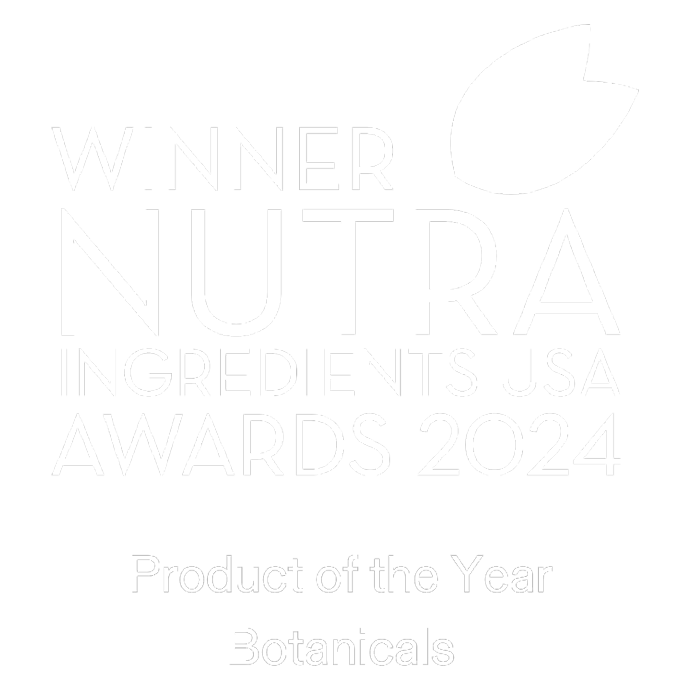Managing weight gain in perimenopause and menopause
Perimenopause—when ovarian function starts to decline and estrogen production starts to vary—typically begins for most women in their mid-40s,1 but it may start as early as the mid-30s. Menopause (defined as 12 consecutive months with no menstrual period) usually occurs some 5-7 years later.1 The timing varies according to a number of factors, including race, ethnicity, lifestyle factors and body size.1 Given that by July 2023, over 40% of the US population were Millennials (aged 27- 42) or Gen X (aged 43-58),2 a substantial percentage of American women are therefore either perimenopausal or have had menopause. Among the many symptoms associated with perimenopause, most women are familiar with the commonly reported ones of hot flashes, night sweats and sleep disturbances, as well as changes in sexual function and mood. However, they may not realize that weight gain can also be attributed directly to loss of estrogen. While distressing symptoms such as hot flashes tend to eventually disappear, perimenopausal weight gain needs to be managed in the long term.
How Estrogen Affects Appetite and Weight
Even prior to perimenopause, women are subject to appetite changes according to the time of their menstrual cycles, because estrogens not only affect fertility but also act both peripherally and centrally to regulate energy balance, affecting food intake, energy expenditure and glucose and lipid metabolism.3 When estrogen falls in the luteal phase of the menstrual cycle, women experience increased food intake of over 200 calories/day, with a preference for sweet foods.4 Similarly, with perimenopausal reductions in estrogens, women experience increased appetite and reduce energy expenditure.5 Unsurprisingly, up to 70% of women thus gain weight during perimenopause.6 This weight gain is not modest: data from the SWAN and Healthy Women’s studies indicate an annual weight gain of 3.3 lbs/1.5 kg during perimenopause, with an average total weight gain of 22 lb/10 kg on reaching menopause.7
Effects of Estrogen on Body Composition
In addition, women experience changes in body composition during perimenopause. Fat mass grows, particularly visceral fat, which increases from 5 -8% total body weight to 10-15% total body weight.7 Cardiovascular fat depots also increase.8 Simultaneously, lean body tissues—primarily muscle and bone—decrease.8 As skeletal muscle reduces, driven by intermittently low estradiol and intermittently high FSH, there is a slow down in metabolic rate.7,8 These effects don’t just cause visible changes in body shape—as women move from a pear shape to an apple shape—but also result in heightened risks of osteoporosis, sarcopenia and cardiometabolic diseases.8,9 Hence there is an increased prevalence of type 2 diabetes, dyslipidemia, metabolic dysfunction-associated steatotic liver disease (MASLD, previously called nonalcoholic fatty liver disease) and cardiovascular disease in postmenopausal women.6

Other estrogen effects may be in play too. Other symptoms of perimenopause, such as hot flashes, night sweats and poor sleep, may negatively impact physical activity, adding to weight gain. Protein loss from both increased breakdown (caused by low estrogen) and reduced synthesis (associated with advancing age) increases the appetite for protein, the so-called ‘protein leverage effect’. But if that protein is ‘diluted’ in a diet rich in fats and carbohydrates, without increasing the concentration of protein, there may be further weight gain.8
Countering Perimenopausal and Menopausal Weight Gain
Many of the metabolic effects of estrogen loss can be helped with hormone therapy (HT), including reduced visceral adiposity and BMI, increased lean muscle mass, improved insulin sensitivity and lipid profile, and decreased risk of cardiovascular disease.6,9 Amelioration of vasomotor symptoms by HT has been shown to improve sleep and increase activity and quality of life, all of which can help to reduce weight.6
Making an active effort to reduce calories is also helpful (especially for those women who can’t or don’t wish to receive HT). Indeed, it’s been estimated that women in their 50s need to ingest around 200 fewer calories a day than they did in their 30s and 40s to avoid annual weight gain during perimenopause and after.10
Activating Endogenous GLP-1 to Help Reduce Calorie Intake
Amarasate® is an extract from hops flowers grown in New Zealand that activates bitter taste receptors in the gut. Activation of these receptors stimulates production of glucagon-like peptide-1 (GLP-1), the hormone that induces satiety centrally and slows down gastric emptying, both of which reduce energy intake. In US$18.5M research over 14 years, Amarasate®, sold as the brand Calocurb®, has demonstrated numerous benefits in terms of reducing hunger, food cravings and food consumption. When given an hour before meals, Calocurb® doubled the normal GLP-1 response to eating (to 6x baseline level), resulting in an 18% reduction in calories ingested at the subsequent meal.11 In a women-only study, Calocurb® was given at hours 16 and 20 of a 24-hour, water-only fast.12 Calocurb® reduced the expected rise in hunger and food cravings in the last 8 hours of the fast by 100% and 120%, respectively.12 Overall, hunger was decreased by 30% and food cravings by 40%.12 Importantly, at the post-fast meal, energy intake was reduced by 14%.12 For a woman eating 1800-2200 calories daily in her 30s-50s, a14% reduction in one meal equates to 252-308 calories—which is more than that currently recommended to avoid weight gain in perimenopause.
Calocurb® is derived by CO2 supercritical extraction in New Zealand and shipped to the US for encapsulation in delayed-release Licaps®, designed to open in the duodenum Calocurb® has been available for over 5 years, where both clinical research and case studies demonstrate a low rate of adverse events. Because the capsules are designed to open beyond the stomach in the duodenum, side effects are minimal. However, up to 5% of users may initially experience diarrhea, so it’s recommended to gradually increase the dose of Calocurb® over a few days. 98% of Calocurb is degraded in the lower colon with less than 1% in the blood stream so it does not affect the metabolism of other medications in the Liver and Kidneys.
Conclusion
Weight gain during perimenopause may amount to over 20 lbs/10kg, affecting both body shape and cardiometabolic health. By helping women reduce their daily intake by 200 calories, Calocurb®, which increases endogenous GLP-1, can be a useful tool to help women avoid or reduce the weight gain of perimenopause and beyond.
- Written for Calocurb by Dr. Tracey Lambert
References
- Gold EB. The timing of the age at which natural menopause occurs. Obstet Gynecol Clin North Am. 2011;38(3):425-440. doi:10.1016/j.ogc.2011.05.002
- Veera Korhonen. U.S. population share by generation 2023. Statista. Published July 5, 2024. Accessed October 27, 2024. https://www.statista.com/statistics/296974/us-population-share-by-generation/
- López M, Tena-Sempere M. Estrogens and the control of energy homeostasis: a brain perspective. Trends Endocrinol Metab. 2015;26(8):411-421. doi:10.1016/j.tem.2015.06.003
- Hallam J, Boswell RG, DeVito EE, Kober H. Gender-related differences in food craving and obesity. Yale J Biol Med. 2016;89(2):161-173. Published 2016 Jun 27.
- Dragano N, Milbank E, López M. Estradiol and appetite: To eat or not to eat. Molec Metab. 2020;42:101061. doi:10.1016/j.molmet.2020.101061
- Hurtado MD, Tama E, Fansa S, et al. Weight loss response to semaglutide in postmenopausal women with and without hormone therapy use. Menopause. 2024;31(4):266-274. doi:10.1097/GME.0000000000002310
- Denby N. Menopause: Nutrition and weight gain. British Menopause Society; 2023. https://thebms.org.uk/wp-content/uploads/2023/06/19-BMS-TfC-Menopause-Nutrition-and-Weight-Gain-JUNE2023-A.pdf
- Simpson SJ, Raubenheimer D, Black KI, Conigrave AD. Weight gain during the menopause transition: Evidence for a mechanism dependent on protein leverage. BJOG. 2022;130(1):4-10. doi: https://doi.org/10.1111/1471-0528.17290
- Muscogiuri G, Verde L, Vetrani C, Barrea L, Savastano S, Colao A. Obesity: A gender-view. J Endocrinol Invest. 2024;47 (2):299-306. doi:https://doi.org/10.1007/s40618-023-02196-z
- Mayo Clinic Staff. The reality of menopause weight gain. Mayo Clinic. Published July 8, 2023. Accessed October 27, 2024. https://www.mayoclinic.org/healthy-lifestyle/womens-health/in-depth/menopause-weight-gain/art-20046058
- Walker EG, Lo KR, Pahl MC, et al. An extract of hops (Humulus lupulus L.) modulates gut peptide hormone secretion and reduces energy intake in healthy-weight men: a randomized, crossover clinical trial. Am J Clin Nutr. 2022;115(3):925-940. doi: https://doi.org/10.1093/ajcn/nqab418
- Walker E, Lo K, Gopal P. Gastrointestinal delivery of bitter hop extract reduces appetite and food cravings in healthy adult women undergoing acute fasting. Obes Pillars. 2024;11:100117. Published 2024 Jun 20. doi:10.1016/j.obpill.2024.100117




